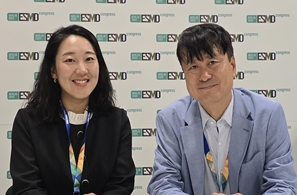- Struggling with dementia drug, Aβ-targeting drug unapproved
- by won-jong-hyuk | translator Byun Kyung A | Nov 26, 2020 06:03am
To this date, multinational pharmaceutical companies have initiated investigation on antibody agents targeting a number of therapeutic targets, such as amyloid-β (Aβ), Tau protein and ApoE4. But they all halted their clinical trials with the same reason.
And academic scholars are also skeptical that such antibody drugs for a single target mechanism would result in significant benefit in treating Alzheimer's disease, which has complicated pathophysiology.

"Two cases of submitted clinical data insufficient to prove treatment efficacy"
Biogen’s analysis on two Phase III studies—EMERGE and ENGAGE—were the controversial evidences assessed during the clinical evaluation.
After comparing EMERGE and ENGAGE data, the AdCom voted eight-to-one against on aducanumab, claiming they could not confirm concrete enough clinical evidence to validate the efficacy.
Biogen has actually halted both EMERGE and ENGAGE studies in March last year based on the outcomes of a futility analysis.
But the brake on the NDA was listed after the company gave a presentation at a major academic conference and announced its plan to submit Biologics License Application (BLA) to FDA in late last year as they acquired more analytical data after they decided to halt the studies in March.
When Eisai in partnership with Biogen unveiled a new set of analysis arguing a high dose of aducanumab demonstrates significant slowing of decline in cognition and in the EMERGE study, FDA announced it would resume reviewing the marketing approval.
After collecting a large-scale data on 2,066 out of 3,285 patients, who continued the treatment for 18 months after participating in the original trial, aducanumab resulted in statistically meaningful decrease in clinical progression of Alzheimer's disease.
The retrospective analysis on EMERGE study found aducanumab met its primary endpoint, where the patients treated with high dose aducanumab showed a statistically significant reduction of clinical decline from baseline in Clinical Dementia Rating-Sum of Boxes (CDR-SB) scores at 78 weeks. Compared to the placebo group, the investigational drug group was improved by approximately 23 percent.
The study’s secondary endpoints were also met as the clinical decline continued to lessen. The aducanumab group, in comparison to the placebo group, improved the Mini-Mental State Examination (MMSE) and Alzheimer’s Disease Assessment Scale scores by 15 percent and 27 percent, respectively. Also the scores on Alzheimer’s Disease Assessment Scale-Cognitive Subscale 13 Items (ADAS-Cog 13) and Alzheimer’s Disease Cooperative Study-Activities of Daily Living Inventory Mild Cognitive Impairment Version (ADCS-ADL-MCI) marked 27 percent and 40 percent higher than the placebo group, respectively.
However, AdCom official stated, “It is still difficult to confirm the treatment’s benefit with the company raising the dose of the investigational drug higher than what is mentioned in the initial clinical protocol.”
Competition heightens among Alzheimer’s disease targeting drugs, experts reserve judgment on single target mechanism

Regardless, most of these drugs are not targeting the patients with Alzheimer's disease, but focusing on customizing the treatment to patients with a specific mutation.
An academic society reported clinical trials are now actively investigating novel drugs targeting Aβ and Tau protein for Alzheimer’s disease treatment. However, Aβ-targeting drugs only brought disappointment to many of multinational companies, although it was considered the most potent candidate.
Roche failed to meet the endpoints in late phase clinical trial on crenezumab targeting Aβ in last February and March, and Biogen and Eisai also had to quit the last Phase III trial on aducanumab.
The Aβ-targeting drug development seems to have slowed down noticeably at the moment, while Eli Lilly and MSD have also announced stopping the investigation on beta amyloid cleaving enzyme (BACE) inhibitors. And AstraZeneca, Jansen, MSD and Roche are on a same boat as they all announced they have closed their clinical trials on the drug due to reports of adverse reaction and issues with efficacy in late-phase studies.
Reviewing all the news, the academic scholars are more reserved on their opinions on developing Alzheimer's disease targeting treatments.
Suk Seung-han, a professor of neurology at Wonkwang University Sanbon Hospital, noted, “The academic scene agrees that accumulated Aβ and Tau protein expressing toxicity effect in nerve cells cause functional problems like killing of nerve cell and deteriorating cognitive function. But the problem is that some patients, according to their medical records so far, abnormally show deteriorating cognitive function regardless of the low level of accumulated Aβ and Tau protein.”
The professor added, “Now the academia is saying there is a high possibility of other risk factors like cerebrovascular lesion and other complications that could develop into dementia in patients, besides Aβ and Tau protein. We are still not convinced that dementia or decline in cognitive function can be prevented by simply hindering the mechanism of a specific factor.”
-

- 0
댓글 운영방식은
댓글은 실명게재와 익명게재 방식이 있으며, 실명은 이름과 아이디가 노출됩니다. 익명은 필명으로 등록 가능하며, 대댓글은 익명으로 등록 가능합니다.
댓글 노출방식은
댓글 명예자문위원(팜-코니언-필기모양 아이콘)으로 위촉된 데일리팜 회원의 댓글은 ‘게시판형 보기’와 ’펼쳐보기형’ 리스트에서 항상 최상단에 노출됩니다. 새로운 댓글을 올리는 일반회원은 ‘게시판형’과 ‘펼쳐보기형’ 모두 팜코니언 회원이 쓴 댓글의 하단에 실시간 노출됩니다.
댓글의 삭제 기준은
다음의 경우 사전 통보없이 삭제하고 아이디 이용정지 또는 영구 가입제한이 될 수도 있습니다.
-
저작권·인격권 등 타인의 권리를 침해하는 경우
상용 프로그램의 등록과 게재, 배포를 안내하는 게시물
타인 또는 제3자의 저작권 및 기타 권리를 침해한 내용을 담은 게시물
-
근거 없는 비방·명예를 훼손하는 게시물
특정 이용자 및 개인에 대한 인신 공격적인 내용의 글 및 직접적인 욕설이 사용된 경우
특정 지역 및 종교간의 감정대립을 조장하는 내용
사실 확인이 안된 소문을 유포 시키는 경우
욕설과 비어, 속어를 담은 내용
정당법 및 공직선거법, 관계 법령에 저촉되는 경우(선관위 요청 시 즉시 삭제)
특정 지역이나 단체를 비하하는 경우
특정인의 명예를 훼손하여 해당인이 삭제를 요청하는 경우
특정인의 개인정보(주민등록번호, 전화, 상세주소 등)를 무단으로 게시하는 경우
타인의 ID 혹은 닉네임을 도용하는 경우
-
게시판 특성상 제한되는 내용
서비스 주제와 맞지 않는 내용의 글을 게재한 경우
동일 내용의 연속 게재 및 여러 기사에 중복 게재한 경우
부분적으로 변경하여 반복 게재하는 경우도 포함
제목과 관련 없는 내용의 게시물, 제목과 본문이 무관한 경우
돈벌기 및 직·간접 상업적 목적의 내용이 포함된 게시물
게시물 읽기 유도 등을 위해 내용과 무관한 제목을 사용한 경우
-
수사기관 등의 공식적인 요청이 있는 경우
-
기타사항
각 서비스의 필요성에 따라 미리 공지한 경우
기타 법률에 저촉되는 정보 게재를 목적으로 할 경우
기타 원만한 운영을 위해 운영자가 필요하다고 판단되는 내용
-
사실 관계 확인 후 삭제
저작권자로부터 허락받지 않은 내용을 무단 게재, 복제, 배포하는 경우
타인의 초상권을 침해하거나 개인정보를 유출하는 경우
당사에 제공한 이용자의 정보가 허위인 경우 (타인의 ID, 비밀번호 도용 등)
※이상의 내용중 일부 사항에 적용될 경우 이용약관 및 관련 법률에 의해 제재를 받으실 수도 있으며, 민·형사상 처벌을 받을 수도 있습니다.
※위에 명시되지 않은 내용이더라도 불법적인 내용으로 판단되거나 데일리팜 서비스에 바람직하지 않다고 판단되는 경우는 선 조치 이후 본 관리 기준을 수정 공시하겠습니다.
※기타 문의 사항은 데일리팜 운영자에게 연락주십시오. 메일 주소는 dailypharm@dailypharm.com입니다.
- [Reporter's View] Transparent info, the key to vaccine trust
- Reporter's view | Son, Hyung Min









